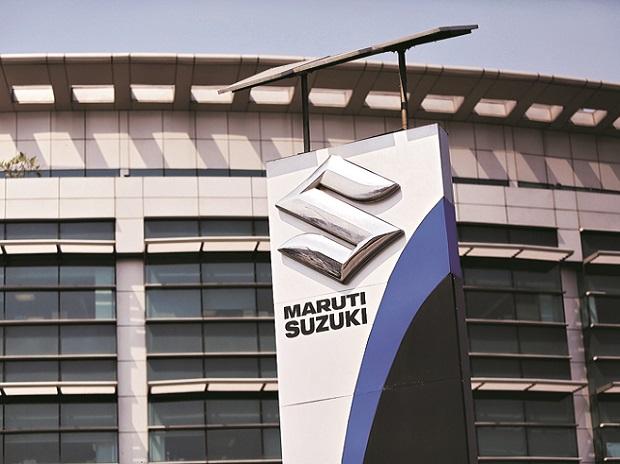[ad_1]
Maruti Suzuki India (MSIL) on Tuesday reported a 129.7 per cent year-on-year (YoY) jump in its consolidated net profit for the October-December quarter (Q3) of 2022-23 (FY23) to Rs 2,391 crore, primarily due to price hikes, better demand for its top-end models, and declining raw material costs.
Revenue for MSIL, India’s largest carmaker with over 40 per cent market share in the passenger vehicle segment, surged 26.9 per cent YoY to Rs 29,918 crore in Q3, while its expenses were up 20.6 per cent at Rs 26,960 crore in the same period.
According to the company’s filing with the BSE, cost reduction efforts, improved realisation, favourable foreign exchange variation, softening commodity prices, and higher non-operating income were the reasons behind the rise in its net profit in the third quarter.
“Pending customer orders stood at about 363,000 vehicles at the end of this quarter (Q3), out of which about 119,000 orders were for newly launched models,” the firm noted.
The company said vehicle sales rose to 465,911 units in the quarter from 430,668 units a year ago.
Sales at its biggest segment — compact cars like Baleno — rose almost 17 per cent, while sales of sport utility vehicles (SUVs), which include the Grand Vitara, rose almost 23 per cent.
Mitul Shah, head of research at Reliance Securities, said MSIL’s revenue rose in Q3 “due to price hikes and an improved product mix with higher demand for top-end models”. “Declining commodity prices are the single-biggest trigger for margin expansion,” he said, adding that the company’s net profit exceeded his estimate by 22.4 per cent.
The share of MSIL’s material costs in its total net sales reduced to 75.7 per cent in Q3 from 78.8 per cent a year ago.
Himanshu Singh, research analyst, Prabhudas Lilladher, said the company’s Q3 performance was better than Street estimates. The order book for Maruti’s new models – the Brezza and the Vitara – remains strong, he mentioned.
“With the addition of two new models in its portfolio (the Jimny and the Fronx), we see the order book starting to again pick up for the new models, and thereby mix to move towards higher ASP (average selling price) models. With these models, MSIL has addressed white spaces in its portfolio,” he added.

MSIL’s domestic passenger vehicle share stands at 41 per cent, as against 43.4 per cent in FY22 and the peak share of 52 per cent in April 2021.
“We see Maruti’s financials improving further, aided by operating leverage and better (product) mix,” Singh said.
At the recently concluded Auto Expo 2023 in Greater Noida, the company unveiled three SUVs: Concept electric vehicle eVX, off-roader Jimny, and compact Fronx.
On Tuesday, Shah said he expected the domestic PV industry to record double-digit volume growth in FY23 and FY24, which would support the company’s business.
“Moreover, sales of premium products would further increase. MSIL would enjoy the benefit of higher market shares in CNG variants, as preference for CNG vehicles has been rising,” Shah added.
[ad_2]
Source link



